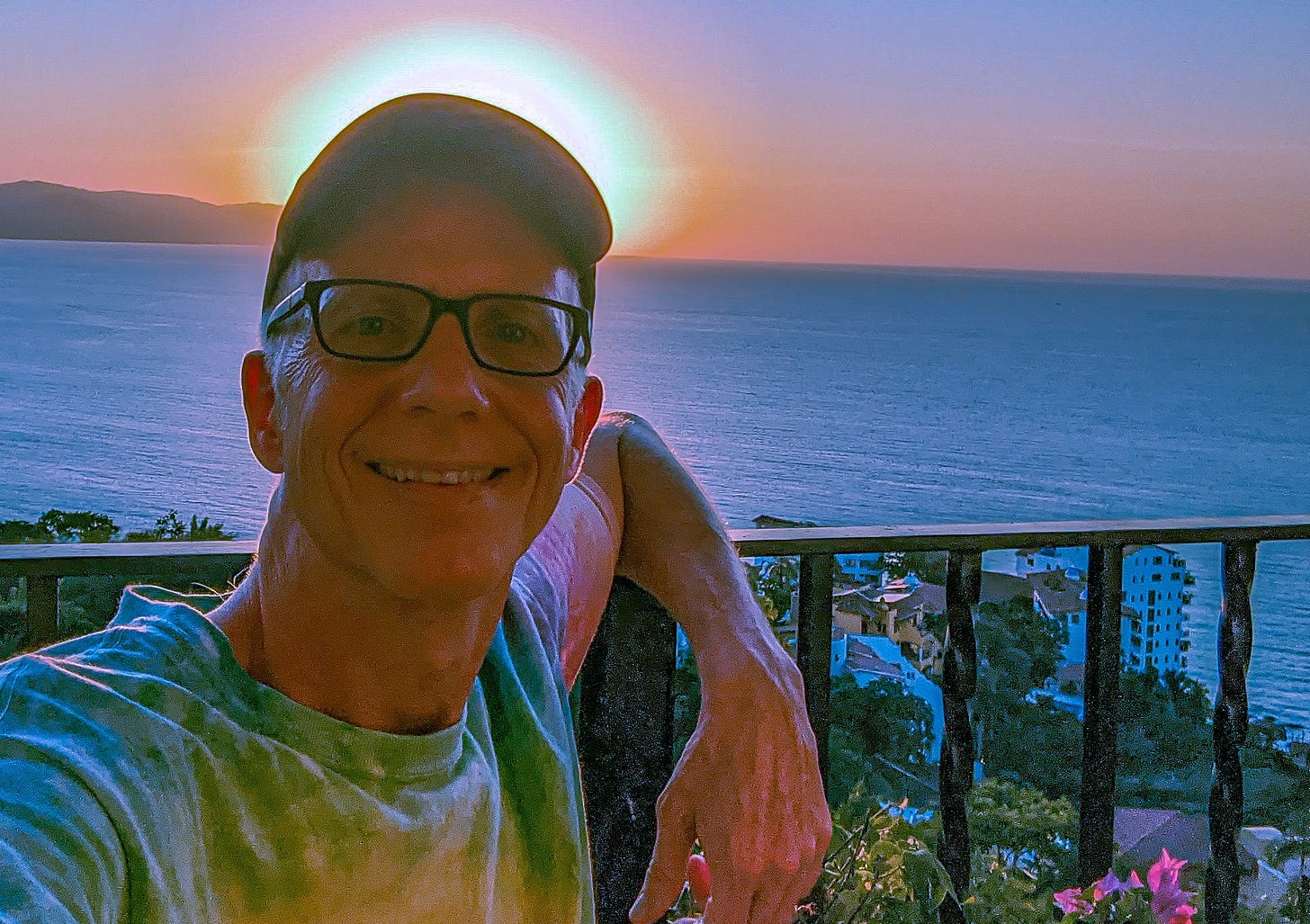I’ve lived with insomnia for more than twenty-five years, which is most of my adult life.
I don’t mean the sort of insomnia where you have a sleepless night or two. I’m talking night after night of laying awake until two, three, or even four in the morning, utterly exhausted but unable to fall asleep.
It isn’t pretty. Sometimes it’s downright hellish.
How did I end up in this situation?
Never Miss a Beat
Subscribe to our newsletter to stay ahead of the latest LGBTQ+ political news and insights.
I blame it, in large part, on my twenty years working as a flight attendant. I had timezone changes, early morning check-ins, and plenty of red-eye flights where my eyes were, in fact, pretty damned red.
The worst part was my five years of being “on reserve,” or on-call. My phone could ring at any time of night or day, and I would have to be at the airport in an hour or less.
And, of course, since it was day or night, I was constantly being woken up. It made it hard to ever truly relax. Was this the point where I lost the ability to sleep deeply?
It doesn’t help that my mind frequently races at night. I might plan my work for the next day or fret over some real or imagined problem. Sometimes both.
Whatever the exact reason, by my mid-thirties, chronic insomnia was woven into the daily fabric of my life.
Upon hearing this, many people suggest treatments that have worked for them, which I appreciate.
But over the years, I’ve almost certainly already tried it.
- I’ve limited my caffeine and alcohol consumption, gotten plenty of exercise, tried to perfect my “sleep hygiene,” kept a sleep diary, and done most of the other common sleep strategies.
- I’ve tried acupuncture, hypnosis, meditation, and a number of different white noise machines.
- I’ve consulted with multiple doctors and participated in two sleep studies that turned up nothing helpful.
- I’ve had a half-dozen sessions with a sleep therapist.
- I saw a psychiatrist for several months, trying various kinds of cognitive behavioral therapy.
- I did two rounds of intensive sleep restriction therapy, which basically turned months of my life into even more of a living hell.
Here are the prescription, over-the-counter, and natural medications I have tried: Ambien, Sonata, Lexapro, Paxil, Seroquel, Atarax, Xanax, Trazodone, Nortriptyline, Doxepin, Diphenhydramine and Doxylamine (antihistamines), and various combinations of melatonin, valerian root, chamomile, and other natural sleep aids.
No over-the-counter medication or natural treatment has ever worked for me, at least not long-term.
Only one prescription medication has consistently worked: Xanax.
Unfortunately, due to addiction and other issues, Xanax isn’t a longterm solution, and my doctor severely limits the amount he will prescribe.
In the early years of my insomnia, I eagerly tried all these different therapies and medications, certain there was a solution out there for me.
Surely, I thought, something will work.
But one by one, each medication or treatment either:
- Failed me outright (hypnosis, noise machines).
- Had some serious complications (hello, Ambien hallucinations!).
- Or eventually stopped working, no matter how high the dosage (Trazodone, which caused shockingly severe withdrawal problems).
As treatment after treatment failed, I moved through different stages of dealing with the problem. Optimism gave way to anger. Sometimes I became utterly enraged. If insomnia had been a living thing, I would have gladly and viciously strangled it with my bare hands.
One night, after tossing and turning for hours, I stormed out of our bedroom, stomping around the house swearing a blue streak.
If my husband Brent hadn’t been awake before, he was now. It isn’t only the insomniac who has to deal with the repercussions of insomnia.
Soon, I reached a really low point. Entering our bedroom felt like stepping onto a battlefield. And getting into bed literally felt like sleeping with the enemy — or at least trying to.
Anger gave way to other equally dark emotions: despair and pessimism. It fell to Brent to keep encouraging me to try different solutions. I tried them all, but you already know how that turned out.
More than once, I told my worried husband I wasn’t sure how long I could live this way.
I wasn’t kidding.
One of the ironies of my insomnia is that after some of my worst nights, I can actually feel fine for much of the next day. And some of my better nights are followed by feeling utterly exhausted.
Even my good days almost always involve what I call the Wall of Exhaustion. That’s when my sleep-deprived mind and body become overwhelmed by tiredness, and I have no choice but to go lie down.
For a long time, I tried to figure out how I could barely sleep at night yet feel okay on some of the days after.
If only I could pin down the reason, I told myself, I’ll have my solution!
But the solution to the puzzle never came.
At some point, I realized I’ll probably never be rid of my insomnia entirely — and maybe never even change it all that much.
But there was one thing that could change: my attitude toward it.

I’m not a higher being — this didn’t come to me in a vision or a flash of insight. It wasn’t really even conscious.
One day, I simply realized I wasn’t feeling anger or despair about my condition anymore. I’d grown tired of fighting and resenting it. Instead, I now simply existed alongside it. We shared the same body, like the renters in a single apartment.
Sure, I still thought about my insomnia. In the morning, when Brent asked me how I’d slept: “Meh,” I’d say. Or, if I was lucky, “Not terrible.”
Or I’d think about it at bedtime when after three really bad nights, I’d decide to take one of my carefully hoarded Xanax.
But it was just another part of my day-to-day life, like shopping, or working on this newsletter, or researching our next nomad destination. When I did think about it, it wasn’t negative or positive. It was just something that was.
It had simply become another part of me. Just like I am a goal-driven writer who loves to travel the world, I am also a chronic insomniac.
I also haven’t given up looking for solutions. Brent still sends me articles on new sleep research. I was delighted by the recent study that said insomnia didn’t shorten lifespans, something I had long worried about.
I also still ask my doctor about new medications and treatments.
But when a new medication or app doesn’t work, I no longer feel anger or despair. When friends ask about my insomnia, I just shrug, say I’m still dealing with it, and move on.
Is this resignation? The dictionary defines that as accepting something undesirable but inevitable; surrender; submissiveness.
But that feels too negative to me. I prefer to describe my attitude now as forbearance, stoicism, or fortitude.
I’d like to say that this new attitude was the key — that by finally accepting my insomnia, it went away, or at least got better.
But it hasn’t.
At least I feel better — emotion-wise, I mean—way less anger and despair.

I’ve also come to see that my insomnia is nothing special, which has helped a lot. Brent has his personal issues. Everyone I know suffers from some “thing” that has a hugely negative impact on their lives. For some, it’s a physical or mental disability. For others, it’s grief over the loss of a spouse or child.
As we’ve traveled, I’ve also seen an almost unbelievable amount of suffering — survivors of war in Bosnia, overwhelming poverty in Mexico, and oppression in Turkey.
As the saying goes, no one gets out of life alive.
And no one gets out without some amount of suffering too.
And if my insomnia is nothing special, then my suffering isn’t special either. Perhaps it’s selfish, but it feels good to realize fate hasn’t singled me out for some special torture.
Today my insomnia is like my shadow — a dark part of me I can’t outrun. But it’s also fleeting, just an outline. It doesn’t control me or make me angry or upset. At times I can even forget it exists.
Yes, I still go to bed with that shadow every night. It’s always there, even after I turn the lights out.
But at least I’m no longer sleeping with the enemy.
Michael Jensen is an author, editor, and one half of Brent and Michael Are Going Places, a couple of traveling gay digital nomads. Subscribe to their free travel newsletter here.
Don't forget to share:





